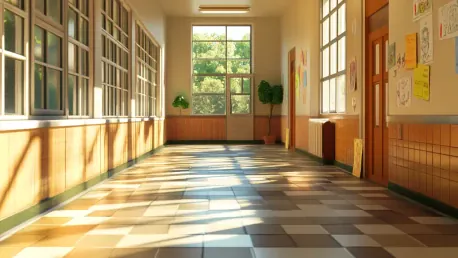Microschools, small educational institutions enrolling fewer than 30 students and often operating in unconventional spaces, are rapidly gaining popularity across the United States. In recent years, Florida has emerged as a hotbed for this educational trend, thanks in large part to significant policy changes aimed at facilitating the growth of microschools. The experiences of the Farro couple in Coral Springs, Florida, highlight the challenges that aspiring microschool founders face, particularly when it comes to securing suitable locations due to strict zoning regulations. However, a new policy in Florida now permits private schools to use existing facilities under current land-use regulations without needing local government approval, streamlining the process and removing significant barriers.
Florida’s Policy Shift: A Model for Other States?
Facilitating Growth with Regulatory Changes
The recent policy change in Florida, allowing private schools to operate without local government approval under existing land-use regulations, represents a significant shift in how educational institutions can be established and run. This regulatory adjustment is part of a broader reform aimed at modernizing the educational landscape to accommodate the unique needs of microschools. Unlike traditional schools, microschools do not require large buildings or extensive land, making previous zoning restrictions particularly cumbersome and often insurmountable.
Proponents argue that existing educational frameworks need to be updated to reflect the evolving nature of learning environments and the diverse needs of students. This policy change is seen as a potential model for other states looking to expand private school options. By reducing bureaucratic barriers, Florida aims to foster a more flexible and adaptive educational system that can cater to varied learning styles and community needs. Critics, however, remain skeptical of these changes, raising concerns about the implications for community input and oversight.
Balancing Community Input and Educational Flexibility
While the policy shift in Florida is designed to streamline the process for establishing microschools, it has also sparked a debate about the balance between educational innovation and community oversight. Critics, including local governments and education policy experts like Professor Josh Cowen, worry that bypassing local government approval could limit community influence on the location and operation of new schools. These critics argue that maintaining some level of local oversight is crucial to ensure that new educational institutions align with community needs and standards.
On the other hand, supporters of the policy change insist that the modern microschool model is more stable, diverse, and sustainable compared to earlier iterations, which were often criticized for being transient and inconsistent. They argue that microschools provide a valuable option for parents seeking more personalized and flexible educational experiences for their children. The debate continues as stakeholders from various sectors weigh the benefits of expanded educational choices against the need for thorough community engagement and regulation.
Microschools: A Growing Trend in Florida
Broadening Educational Opportunities for Families
The increasing popularity of microschools in Florida is reflected in the significant number of students benefiting from taxpayer-supported scholarships to attend private schools, including microschools. Over 450,000 students in the state are now utilizing these scholarships, highlighting a growing trend towards alternative education options. This development is opening new avenues for parents to engage with K-12 education, offering more customized and flexible learning environments that can better cater to individual student needs.
Microschools have found particular resonance among urban Black families, who represent a rapidly growing segment of this educational movement. These families are often drawn to the promise of a more intimate learning experience and the ability to have a more active role in their children’s education. As the movement grows, it becomes increasingly clear that microschools are not just a passing fad but a significant shift in how education can be delivered and experienced in contemporary society.
Navigating Challenges and Future Implications
Florida’s recent policy shift allows private schools to operate without needing local government approval under current land-use rules. This marks a notable change in how educational institutions can be started and managed. The new regulation is part of a larger effort to modernize education and make it more adaptable to the unique requirements of microschools. Unlike traditional schools, microschools don’t need large facilities or extensive land, making prior zoning laws particularly burdensome and often impossible to navigate.
Supporters argue that the educational system needs updating to better reflect the changing nature of learning environments and the diverse needs of students. They see this policy shift as a potential template for other states aiming to increase private school choices. By cutting down on red tape, Florida seeks to create a more flexible and adaptable education system that can address various learning styles and community needs. Critics, however, worry about the potential loss of community input and oversight, questioning the broader implications of these changes.









